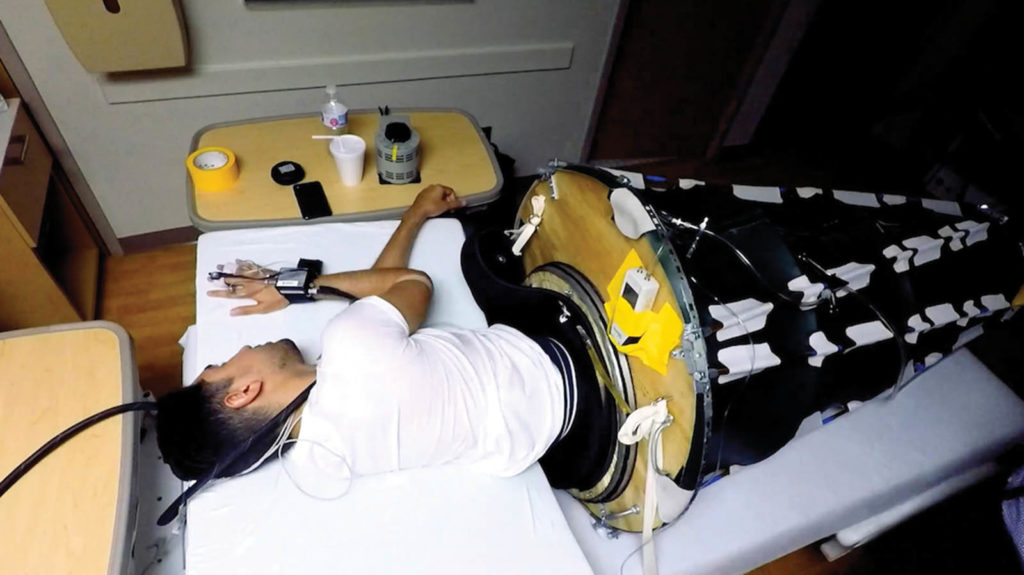
The University Texas Southwestern (UTSW) has been involved in a brain pressure project that NASA says is critical to its mission to Mars. According to UTSW, scientists there have created a sleeping bag designed to help solve vision issues that occur when astronauts experience zero gravity over a prolonged period of time.
While experiencing earth’s gravitational force, the body naturally pulls fluids down when a person rises each morning. This process called “unloading” can’t occur in space because astronauts never actually stand up in zero gravity. This causes extra fluid to collect in the head, which applies pressure to the eyes, reshaping the back of the eyeball.
Researchers tested the sleeping bag with a volunteer, who lay flat for just three days, which created enough pressure to slightly alter the eyeball’s shape. With the vacuum-equipped sleeping bag, they found they could pull down body fluids that naturally flowed into his head while reclining, and no changes in eye shape occurred.
The phenomenon has vexed scientists for more than a decade and remains one of the biggest health dilemmas of human space exploration.
 TEXTILES.ORG
TEXTILES.ORG


